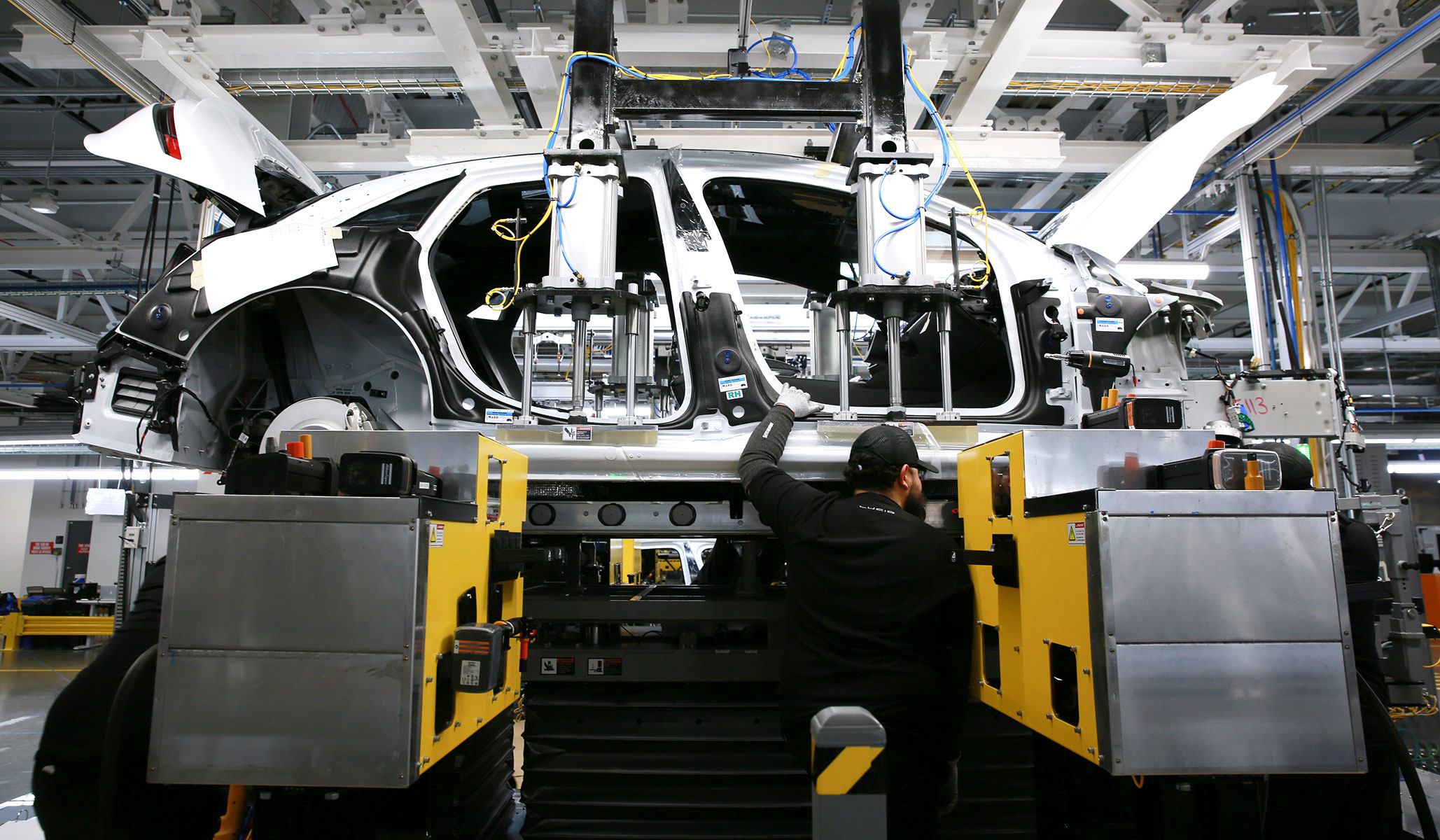


Back in June, I wrote this:
Policy-makers relying on electric vehicles to be a source of net new jobs (after subtracting the jobs lost by conventional automakers, and to Chinese manufacturers) are likely to be disappointed.
I also touched on this topic here.
Well, here (via Peter Campbell in the Financial Times) is a small preview of what is coming:
That electric vehicles take fewer people to make and design is well documented.
What had remained abstract is the effect on the region’s workforce when the axe begins to swing.
Ford this month announced plans to cut 40 per cent of its entire European engineering team.
The shift to electric is driving the brand (and many others) out of smaller models, while their remaining models are battery-powered and so are swifter to engineer and simpler to assemble.
Note the reference to the shift out of smaller models. That’s one reason why cheap new conventional cars are going to be increasingly difficult to find, a shift that the anti-car ideologues steering so much of climate policy will see as a feature, not a bug. The proles can take public transport, and like it.
Back to the FT‘s Campbell:
The cold reality is that Ford’s announcement is only the first cut, comprising one small part of an entire machine that will be wound down within a decade or so.
Today, Europe’s auto industry employs 3.5mn people directly in manufacturing.
Ford chief executive Jim Farley estimates that EVs require 40 per cent fewer people to make — the equivalent of 1.4mn jobs if applied across the industry.
These are high-skilled, high-productivity, well-paid positions that are often in geographic areas that would otherwise be economic backwaters. Just look at Nissan’s Sunderland plant or in Slovakia, which has four plants that turn out one car for every five people living in the country annually.
Yes, there may be job creation, new roles in the new frontiers of batteries or software development — a 2021 study from Boston Consulting Group estimated the creation of 581,000 roles in Europe. But to pretend they will be filled by retraining discarded diesel engineers is fanciful.
Some companies offer retraining, others will not replace retiring staff. But this will only dull, not eliminate, the pain.
The most painful thing, perhaps, for the workers losing their jobs is that the march to the EV scaffold was begun by politicians and regulators.
Europe’s regulators have decided that the region’s new cars need to be zero emission by 2035.
That’s one thing never to forget. The shift to electric vehicles (EVs) is happening as a result of a series of political decisions, not consumer demand. But if there’s one thing that the sad history of central planning ought to have taught us by now, it is that switches on this scale tend to succeed when they are bottom-up, the product of a continuing exchange of “information” between manufacturer, innovator, and consumer. To dictate them from the top is, for the most part, asking for trouble.
But, the FT’s Campbell would like those who have been fired (or will be fired) to know that their jobs will have been extinguished in a good cause:
This is unquestionably the right choice for the planet. But that necessity will create huge collateral damage.
Or as someone put it when discussing another giant exercise in central planning:
You can’t make an omelet without breaking eggs.
And as someone else said in response to that comment:
“Where’s the omelet”?
Which brings me to that “unquestionably,” which is, I am afraid, nonsense. Switching to EVs at the reckless pace that the Europeans (and some American states) are now planning (as mentioned above, sales of new combustion engine cars will be banned in the EU from 2035) will have only a marginal effect on the climate. I wrote about this topic in the course of a longer article on EVs here.
Back to Campbell:
Europe today is a world leader in engines, being home to Ferrari, Mercedes-Benz and Volkswagen (Japan and Detroit deserve podium spaces here too.)
Yet it is China, which anticipated the battery revolution more than a decade ago and has positioned itself as the global leader, that is best placed to dominate tomorrow’s auto landscape.
So, not only is this auto regime change destroying a large number of jobs for little discernible change to the climate, but, piling stupidity on top of stupidity, it is also handing leadership of a key industrial sector to China, a hostile superpower on the rise, which does not, incidentally, seem to be too worried about the climate.
Campbell concludes:
The coming job cuts are the unavoidable casualty of deliberate policy choices made by regulators who will not be in office when the region’s dole queues are swelled by their decisions.
Even if you agree that the policy was necessary, it is still true that Europe set a bomb under the region’s auto employment. It cannot now complain when the whole thing goes up.
But its workers will, and the consequences are unlikely to be pretty.
